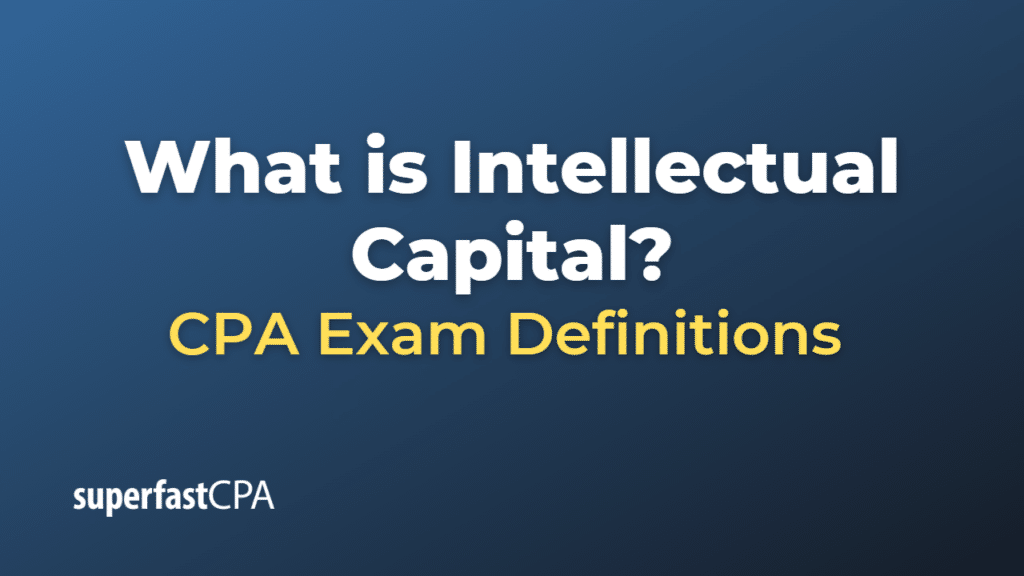Intellectual Capital
Intellectual capital refers to the intangible value of a business, including its knowledge, human resources, relationships, and the innovation potential of these assets. Essentially, it is the intellectual material—knowledge, information, intellectual property, experience—that can be used to create wealth. It’s considered an asset and is key to gauging a company’s competitiveness.
Intellectual capital is typically categorized into three types:
- Human Capital: This refers to the knowledge, skills, and abilities of the employees within an organization. It is the value that the employees provide through the application of their skills, know-how, and expertise. Human capital, being linked to the employees, is always on the move and cannot be owned by the organization.
- Structural Capital: This includes the supportive infrastructure, processes, databases, patents, and trademarks of a business that allows human capital to function. It is owned by the organization and stays with the organization.
- Relational Capital (also known as Social or Customer Capital): This refers to the value derived from an organization’s relationships with customers, suppliers, and partners, and its reputation in the marketplace.
Measuring intellectual capital is challenging due to its intangible nature. However, understanding its influence on a company’s performance can help stakeholders make more informed decisions about the company’s strategy and value.
Example of Intellectual Capital
Let’s take a look at an example of a tech company, such as Google, to understand how intellectual capital works.
- Human Capital: Google’s human capital includes the knowledge, creativity, and skills of its engineers, marketers, and leaders. The abilities of its staff to innovate, design, and implement new ideas, technologies, and marketing strategies represent a significant part of Google’s intellectual capital.
- Structural Capital: Google’s structural capital includes its proprietary search algorithms, data centers, machine learning technologies, and the various platforms it has developed like Google Docs, Google Sheets, and Google Cloud. This structural capital enables the company to provide unique and highly valued services.
- Relational Capital: Google’s brand reputation, customer relationships, and partnerships form its relational capital. The trust users place in Google for their search needs, the relationships it has with advertisers, the extensive user base of Android OS, and collaborations with other tech companies are all part of Google’s relational capital.
By leveraging this intellectual capital, Google has built a dominant position in the tech industry, and it forms the bedrock of the company’s ongoing success and innovation potential. The value of this intellectual capital is not easily quantifiable on a balance sheet, but it is instrumental in driving Google’s market value far beyond its tangible assets.













